What a good time to study A Level Politics!
Year 12 and 13 Politics students have had a gripping time discussing the turbulent and dramatic political events of the last few weeks. At the start of the year Y12 students were...
Filter by Category
Filter by Author

























































































































































































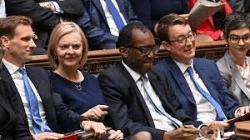
Year 12 and 13 Politics students have had a gripping time discussing the turbulent and dramatic political events of the last few weeks. At the start of the year Y12 students were...
Posted by Giles Monks
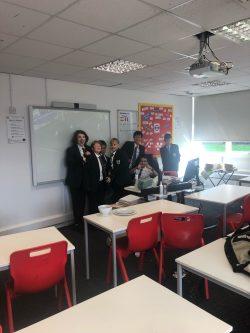
A major advantage of learning another language is the ability to access other cultures. Our Spanish club uses our language skills to follow La Liga, one of the most globally...
Posted by Duncan Harrop

Posted by Maryam Razavi
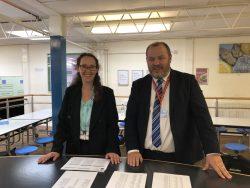
The SEND information evening was held on Tuesday 18 October. Mrs Seed, SENDCo, gave a presentation to invited students, parents and carers about the support offered at Bushey...
Posted by Sara Ash - Deputy Headteacher
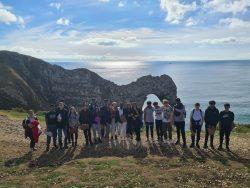
We set off from school at around 9:20am on Wednesday 12th October and arrived at Leeson house at around 12:40pm, which is where our accommodation was and where we slept over the 2...
Posted by Sarah Dunsby

Posted by Sara Ash - Deputy Headteacher
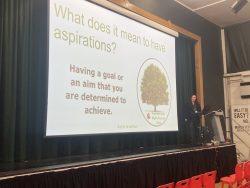
The Theme of the Week this Week was Aspirations with assemblies delivered by Assistant Headteacher, Ms Greenwood. Linking to the school motto of Aspire to Achieve and the...
Posted by Sara Ash - Deputy Headteacher

On Thursday 13 October the main hall was packed with Year 11 students, parents and carers ready to learn different strategies and techniques for revision. Mrs Knowles, Assistant...
Posted by Sara Ash - Deputy Headteacher
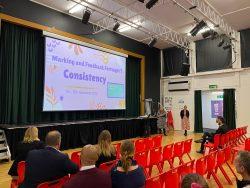
Our Monday Magic Moment this week in our Staff Meeting before school was led by two of our most inspiring and talented teachers: Lead Practitioner Mrs Hoskins and Advanced Lead...
Posted by Jeremy Turner
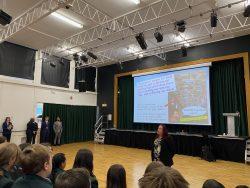
The theme for our Main School Assemblies this week has reflected a strand that is at the very core of our school – that of Aspiration. Assistant Headteacher Mrs Greenwood...
Posted by Jeremy Turner
Year 12 and 13 Politics students have had a gripping time discussing the turbulent and dramatic political events of the last few weeks.
At the start of the year Y12 students were studying representative democracy and how our political representatives (for example MPs) are elected. Students were surprised to discover that in the UK voters don’t vote directly for the Prime Minister unless they live in her constituency which is South West Norfolk. At a general (Westminster Parliament) election, voters only vote for the individual candidate they want as an MP in their constituency. A constituency is an area of about 73,00 voters and uses the First Past the Post system, which means the winner does not have to have a majority of all votes cast,but be the individual with most individual votes. Y12 students considered how we appoint our Prime Minister – with no public vote, the PM is the leader of the political party with the most seats (MPs) in parliament. This is why when David Cameron resigned as Conservative party leader leader in 2016, Tereasa May and later Boris Johnson became first Conservative party leaders and then automatically Prime Minister without a general election. Teresa May’s 2017 election destroyed her majority and control in parliament, while Boris Johnson won an 80 seat majority of MPs in the December 2019 election in 2019. An election does not have to be called until 2024. This is because the UK doesn’t have a written constitution. So there is no established procedure for removing and replacing a Prime Minister apart from them resigning if they lose a ‘vote of no confidence’ in Parliament. This is very rare as the governing party usually has a majority (currently 71 MPs) so in theory she should be able to win a vote of confidence – as long as her own MPs support her.The last successful vote of no confidence was in 1979 which triggered the general election which Margaret Thatcher won.
The recent mini budget occurred as Y13 were studying conservatism as an ideology. This has allowed much discussion on whether conservatism is an ideology for just represents the wealthy and privileged. One nation conservatives, such as Disraeli would agree with Michael Gove when he condemned the Truss backed higher rate tax cuts as being ‘unconservative’. One nation conservatives believe that with privilege comes responsibility to help others. This is known as ‘noblesse oblige having a duty to other less privileged’. Conservative ideology suggests that those in authority are most suited to lead and make decisions, learning from previous experience or tradition and using this to respond paternalistically. Paternalism means behaving in a father-like way, guiding and supporting others in society to ensure that everyone in society is included and avoiding divisions. This creates an ‘organic society’ which unifies and strengthens all people as conservatives have a pessimistic view of human nature. Order, authority and tradition are important to give stability as otherwise humans will make emotional, flawed decisions as they are not rational.This is why many conservatives rejected the tax cutting mini budget as it seemed to favour privilege and so further divide society in a time of great economic and fuel hardship. Liz Truss then demonstrated another conservative core idea – pragmatism. This is the ability to respond with new solutions flexibly rather than following a fixed idea. Her government’s U turn on tax cuts and the sacking of ex- chancellor Kwasi Kwarteng shows pragmatism; she changed the majority of her economic policy due to pressure from MPs, the electorate and media. Other neo liberal ‘New Right’ conservatives described this change as a betrayal. They reject pragmatism and believe in fixed economic plans allowing deregulation, individual merit and a minimal state.
Ideology has many challenging ideas and key terms, yet it has been brought to life watching the political drama of the current government attempting to deal with the current economic crisis.
What will happen next is anyone’s guess – but Year 12 and 13 politics students will be following wide eyed!
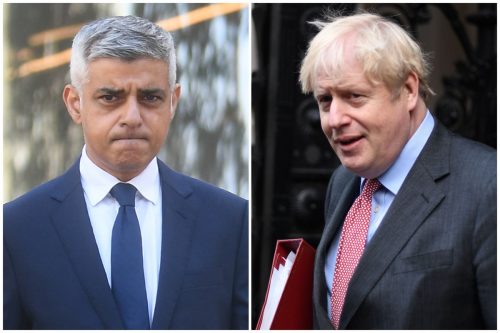
This week Y12 Government and Politics students have been discussing the results and assessing the wider impact of the elections held across the UK on 6th May. Overview Labour...
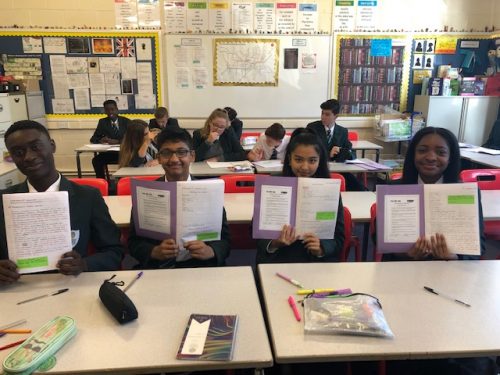
The largest faculty in the school is the Humanities and Social Sciences faculty. All students in key stage 3 study have three lessons of humanities each week, studying geography,...